Source: Decrypt
Compiled by: BitpushNews
The involvement of celebrities in cryptocurrencies is no longer a new phenomenon. As early as 2013, former child star Brock Pierce co-founded Blockchain Capital, marking the beginning of celebrities "venturing" into the crypto space. From former US President Trump to singer Lindsay Lohan, various celebrities have flocked to the crypto industry, trying to make a fortune in the crypto wave.
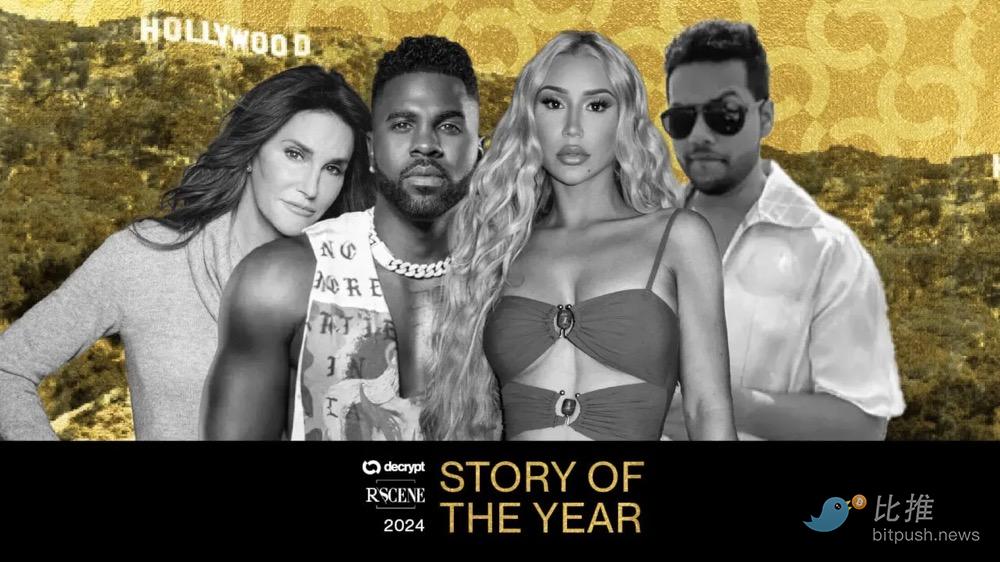
However, the celebrity effect is not always a panacea. Some have used their influence to endorse crypto projects, but the results have often been unsatisfactory. Over the past decade, the US Securities and Exchange Commission (SEC) has taken action against more than a dozen cases of celebrities illegally promoting cryptocurrencies, with Kim Kardashian and boxer Floyd Mayweather among those penalized. Even more distressing is that many celebrities have also been embroiled in the collapse of the FTX exchange, a storm that has nearly destroyed the entire crypto industry.
If the involvement of celebrities in cryptocurrencies can be considered an "old story," then the 2024 surge of "celebrity meme coins" can be described as a "new trick." As meme coins replace Non-Fungible Tokens (NFTs) as the new darling of speculators, a large number of celebrities have also followed suit, personally issuing their own meme coins, and even trying to build business models around these tokens.
In the past year alone, nearly a dozen major Western celebrities have launched their own meme coins. The community feedback has been mixed, with more negative impacts.
Traditional investors usually believe that Bitcoin investors have a higher risk tolerance, but the fanatics of meme coins are the true adventurers - like being in the Wild West, the prices of their tokens can skyrocket or plummet in an instant.
On the meme coin issuance platform Pump.fun, this craziness is fully manifested. Olympic decathlon champion Caitlyn Jenner released her own meme coin on the platform, kicking off the celebrity meme coin craze.
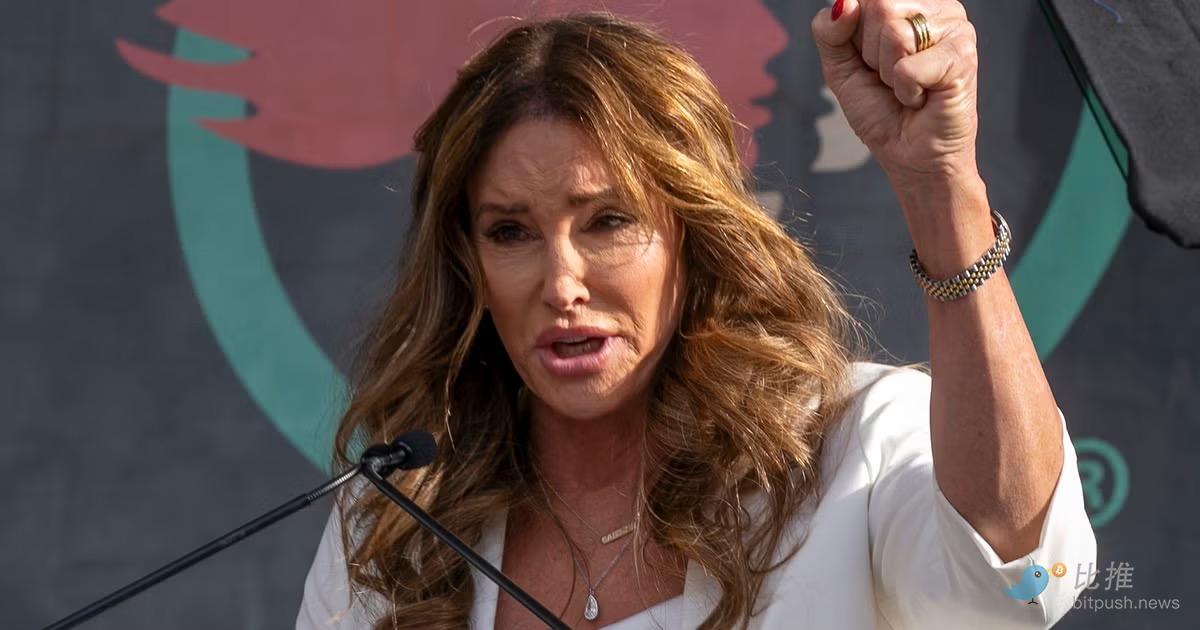
Pump.fun has seen many "mind-blowing" stories. There was a user who threatened to end the life of a small goldfish if people didn't buy his meme coin; another person vowed to sit on the toilet until his token's market value reached $50 million (he even shaved off an eyebrow when it reached $10 million). Some have taken even more extreme actions, such as a young man who "self-fen (second tone)."
At the height of Pump.fun's popularity, in May 2024, Jenner teamed up with Trump, who was actively preparing for the election at the time, to launch her own token with great fanfare.
This move sparked huge controversy, with many suspecting Jenner's social media account had been hacked or that it was a deep fake scam. Even Pump.fun's co-founder was shocked.
Pump.fun's co-founder Alon (pseudonym) told Decrypt: "I was almost dumbfounded at the time." He said it was one of the craziest moments in the company's brief but eventful history: "We tweeted that she had issued a coin, and then we were all confused, 'Did she really issue a coin?' I had no idea what was going on, it was so crazy."
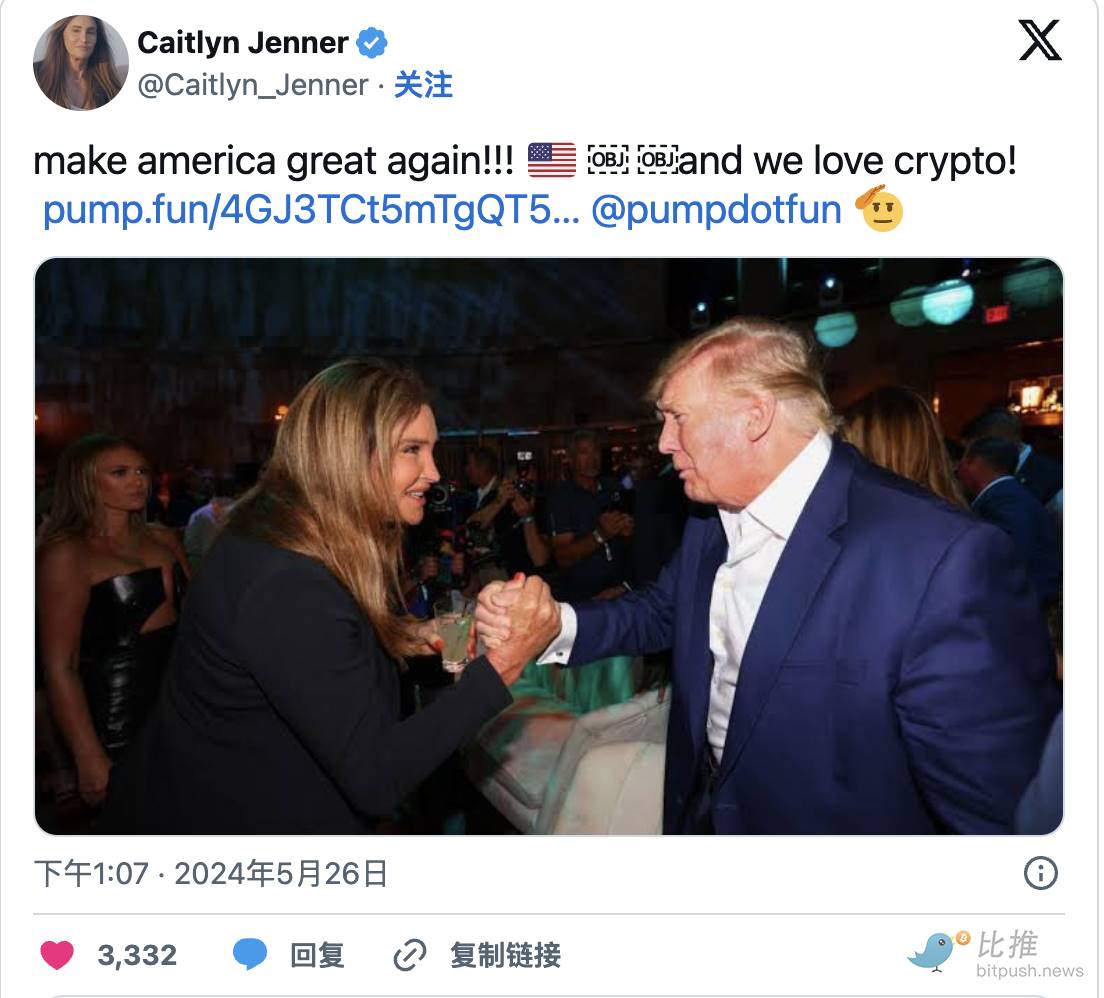
It turned out that the "farce" behind Jenner's move was crypto promoter Sahil Arora. He had signed a contract with Jenner, promising to issue tokens for her and agreeing to pay a $50,000 advance and an 80% revenue share.
However, the collaboration quickly descended into a farce. Jenner accused Arora of breach of contract and publicly cursed him on Twitter: "F...k Sahil Arora! He scammed us!"
In a May interview with Decrypt, Jenner said that Sahil Arora "disappeared into thin air" after showing a few wire transfer records, and still owes her "a lot of money." Arora did not respond to Decrypt's request for comment at the time.
But this was just the beginning.
After collaborating with R&B singer Jason Derulo to issue tokens, Derulo also publicly accused Arora of deceiving him. Arora responded by saying that it was "all part of the script." Subsequently, Arora also issued tokens for rappers Rich the Kid and Lil Pump, and these stars also complained of similar experiences.
Later, rappers Cardi B, Waka Flocka Flame, and Sean Kingston also issued their own tokens, but did not publicly collaborate with Arora.
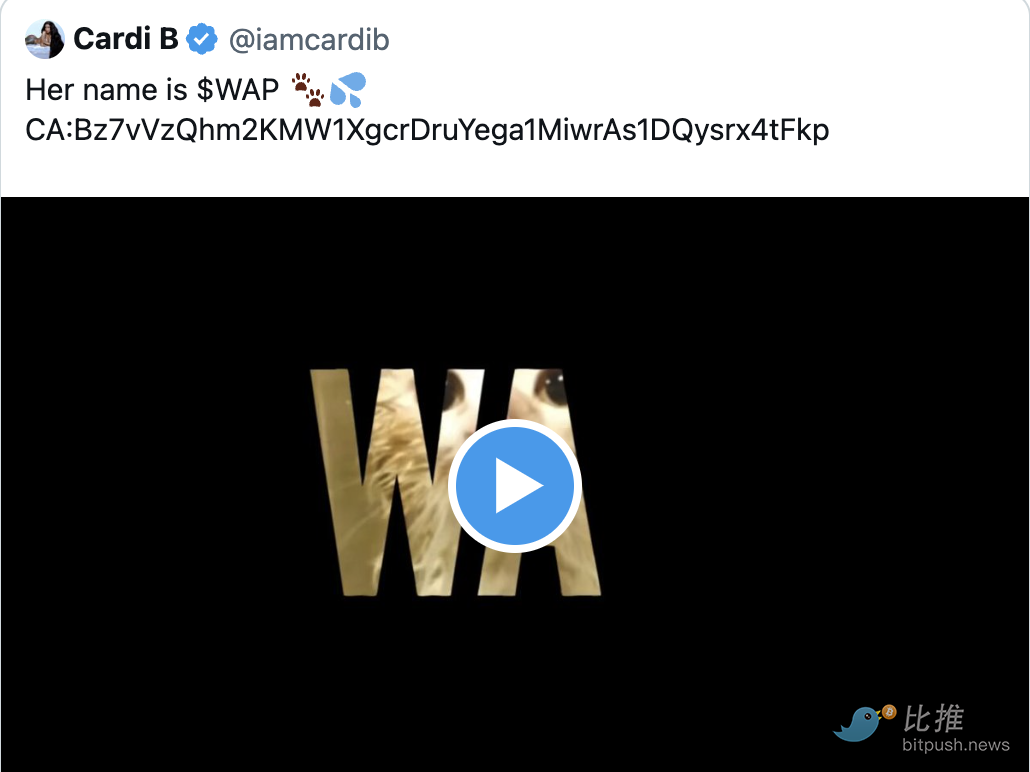
Data visualization company Bubbleworks posted a long article on social media platform X, "bombarding" Arora, claiming that he had earned $30 million this year by acting as an agent for celebrities to issue meme coins.
Bubblemaps co-founder and CEO Nick Vaiman told Decrypt: "Many tokens had obvious danger signals from the start, such as high centralization, malicious manipulation, and obvious 'rug pull' strategies."
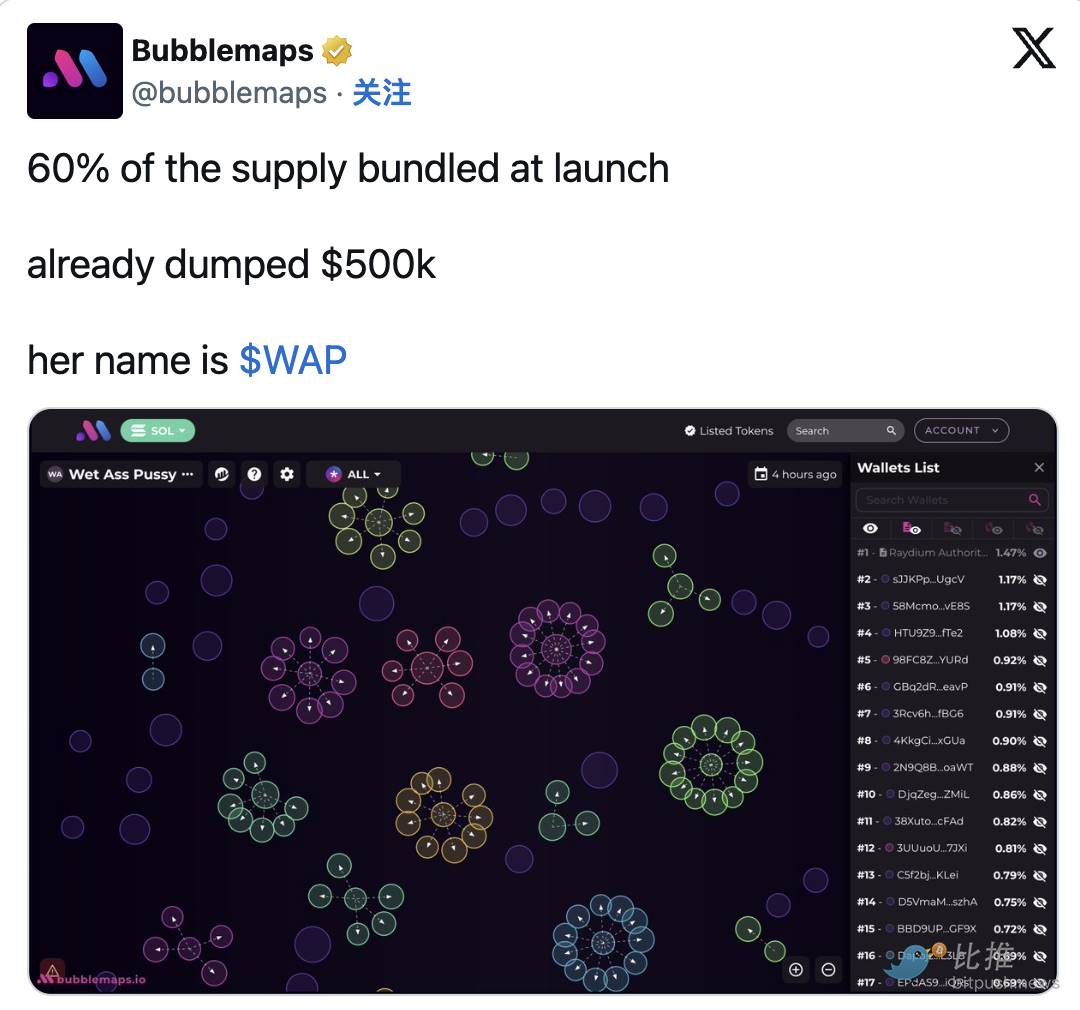
Of course, not all celebrity meme coin launches ended in farce. Australian musician Iggy Azalea is an exception. Although her token MOTHER was questioned by Bubblemaps for having 20% of its supply "sniped" at launch, she claimed to be unaware of it.
Bubblemaps' on-chain detective pointed out that this could only happen if the token contract address was leaked to insiders in advance.
However, after Iggy Azalea participated in a Twitter Spaces event, demonstrating her understanding of crypto and publicly criticizing Arora, the public opinion shifted.
Pump.fun's founder Alon said: "When we found out she really knew what she was doing, we were very optimistic about her. It felt great."
A few months later, more and more celebrities issued tokens, only to become "shit coins." Jenner even issued an Ethereum token, causing the price of her initial Solana token to plummet.
So, what is the current status of these celebrity meme coins?
As of the time of writing, Jenner's Solana-based meme coin has a market value of only $357,000, while her Ethereum token has a market value of only $139,000, far below their previous peaks of $42 million and $7.5 million, respectively.
Jason Derulo's JASON token has plummeted 97.8% from its peak, with a market value of $783,000;
Waka Flocka Flame's FLOCKA token has fallen 99%, with a market value of only $238,000; the bundled token WAP has even crashed 99.65%, with a market value of less than $138,000.
In an interview with Decrypt, Iggy Azalea said: "Most celebrities involved in this had the worst intentions. I don't think any of them really wanted to do crypto tokens, they just wanted to cash out quickly and then leave."
As these tokens collapsed and celebrities withdrew, the first lawsuit also followed. In November 2024, a group of investors filed a class action lawsuit against Jenner and her agent, accusing her of making false statements about her Solana meme coin and failing to register it as a security.
Jenner's team did not respond to Decrypt's request for comment.
Some crypto legal experts say more such civil lawsuits may emerge in the future. "We will see an increase in lawsuits involving celebrity endorsements of meme coins," said Andrew Rossow, an internet lawyer, in an interview with Decrypt. "Celebrities will increasingly be held accountable for their promotional activities, and may even face broader legal liability as 'sellers' of these digital assets."
Carlo D'Angelo, a digital asset lawyer, stated: "Jenner's lawsuit is a clear warning to any celebrity who thinks they can overpromise and underdeliver on Shit Coins, just to make a quick buck."
Some crypto advocates believe that celebrity Meme Coins help attract young people to crypto. For example, Aronow previously told Decrypt that he sparked the celebrity meme coin craze to make crypto more mainstream than ever before.
Nick Vaiman, the founder of Bubblemaps, summarized: "For a narrative to succeed, it needs universality, hope, and role models. It needs to be able to captivate the masses and create real success stories to sustain hope and inspire others. However, celebrity crypto projects have failed to establish such a virtuous cycle, instead becoming a predatory mechanism that extracts liquidity from retail investors, leaving everyone empty-handed."








